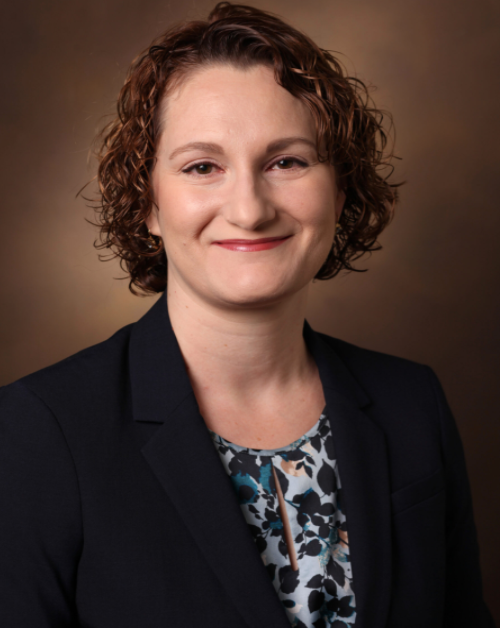Why COVID-19 Could Pose New Medication Risks
Talk to your doctor if you want to add supplements or cut back on meds
It's common for older adults to take multiple medications, whether they're for easing pain, lowering blood pressure or cholesterol or treating a chronic condition. Yet the COVID-19 pandemic has amplified concerns about polypharmacy – regularly taking five or more prescription drugs.

Some prescriptions have side effects, such as dizziness, that can be particularly dangerous for older people; others pose a risk of drug interactions. Adding supplements or over-the-counter products to prevent COVID-19, or drugs to treat it, can compound the risks.

A few months ago, pharmacist Nicole Brandt counseled a 74-year-old Maryland woman who had come to an outpatient clinic for a wellness checkup. Brandt is executive director of the Peter Lamy Center on Drug Therapy and Aging at the University of Maryland. Her patient had reason to be especially fearful of the pandemic: the woman had advanced kidney disease and was on dialysis. The woman mentioned that she had begun taking high-dose vitamin D because she heard it was protective against COVID-19.
But taking a seemingly benign supplement turned out to be risky, says Brandt. The woman was already taking vitamin D as part of her medication regimen for renal failure. A blood test showed her level was 100 nanograms per milliliter, double the highest level in the normal range. While some vitamin D is helpful, too much could be toxic.
"COVID really made us take a pause and ask, 'Are these medications needed during the pandemic — and after the pandemic?" says Brandt, who worked with colleagues to create a guide to Optimizing Medication Management in the COVID-19 Pandemic.
Some Meds May Carry COVID-19 Risks
As people age, they tend to receive medications for new health concerns without discontinuing drugs that are no longer needed, Brandt says.
For example, statins, which lower cholesterol, appear to provide less benefit for people over 75 in primary prevention of a heart attack or stroke. Benzodiazepines such as Xanax and Valium can increase the risk of falls and may lead to cognitive decline in older adults.
COVID-19 adds a new dimension to the balance of risks and benefits.
For example, using a nebulizer for breathing conditions could expose other people in the household or living facility to aerosols, and studies conducted before the pandemic associated inhaled corticosteroids with a higher risk of lung infection among older adults.
That's not a reason to stop taking medications which are necessary and working well, but it is important to periodically review the frequency and combination of all medications (prescription and over-the-counter) with your health providers, says Brandt.
Cutting back on medication can seem scary. After all, each one was prescribed for a reason.
Taking many medicines may indicate that you have one or more medical conditions that raise the risk of contracting COVID-19.
Researchers in Scotland found that people taking four or more medications were more likely to become infected with the coronavirus. They analyzed information collected through the UK Biobank, a project that collects health information and blood samples on about a half-million people.
Of nearly 4,500 participants who were tested for COVID-19 infection, 1,324 were positive. The likelihood of infection rose with the number of reported medications; people taking seven to nine medications were almost twice as likely to test positive as those taking no medications.
"Certainly, as we age, we get more [medical] conditions," which means more medications, says co-author Frances Mair, professor and head of general practice at the University of Glasgow. And while studies show COVID-19 can have more severe health consequences for people with certain medical conditions, such as diabetes or heart disease, having multiple conditions compounds the risk, she says.
Our Commitment to Covering the Coronavirus
We are committed to reliable reporting on the risks of the coronavirus and steps you can take to benefit you, your loved ones and others in your community.
Read Next Avenue's Coronavirus Coverage
As the daily medication roster grows, so does the risk of drug interactions with potential COVID-19 treatments.

A high risk of drug interactions doesn't necessarily mean a treatment is off-limits, says Veronique Michaud, chief operating officer of the Precision Pharmacotherapy Research & Development Institute at Tabula Rasa HealthCare in Moorestown, N.J., which develops algorithms for medication risk management.
"It's a flag that close monitoring should be put in place, or that a systematic review of the drug regimen needs to occur to prevent adverse drug events," she says.
'Do I Still Need to Take This Medicine?'
Deprescribing – the process of reducing the number of medicines someone takes – has gotten more attention in recent years. About a third of adults between age 60 and 79 take five or more prescription drugs, and as of 2015, about 16% of Americans 65 and older received prescription drugs that are considered inappropriate for older adults because of the risk of falls, cognitive impairment or other hazards.
"A patient can feel empowered to go to their doctors and ask, 'What is this medicine?'"
Cutting back on medication can seem scary. After all, each one was prescribed for a reason.
"Our concern is that while people do have many medical conditions that these medicines are treating, they may not be getting a benefit from all of them," says Dr. Amanda Mixon, a hospitalist at Vanderbilt University Medical Center who is helping conduct the Shed-MEDS study, which involves deprescribing among patients who are 50 or older and are being discharged from the hospital to a rehabilitation or skilled nursing facility.
Mixon and her colleagues discuss the medication regimens with patients to learn whether they are actually taking what has been prescribed, whether the medications have side effects and whether the patients' medical conditions are well-controlled. If the review raises questions about certain drugs, Mixon talks to the prescribing physician. No prescriptions are changed unless the patient agrees to the change and the physician signs off on it, she says.
The trial has just finished and results are still being reviewed, so it's not yet clear how much the research will reduce medication use. But it underscores how patients can have a voice in prescription decisions.

"A patient can feel empowered to go to their doctors and ask, 'What is this medicine? What is it for? Am I going to benefit from this enough to continue taking it?'" says Mixon.
Keep an up-to-date list of the prescriptions and over-the-counter supplements you take, so you can share it if you go to a new doctor or to the hospital, Mixon advises.
Experts caution that you should never decide on your own to stop a medicine. It might need to be tapered slowly or replaced with something else.
And don't let the fear of COVID-19 or of drug interactions keep you from getting important treatments. "Poorly controlled chronic illness is probably a greater risk than any medicine we know about," says Mair.


